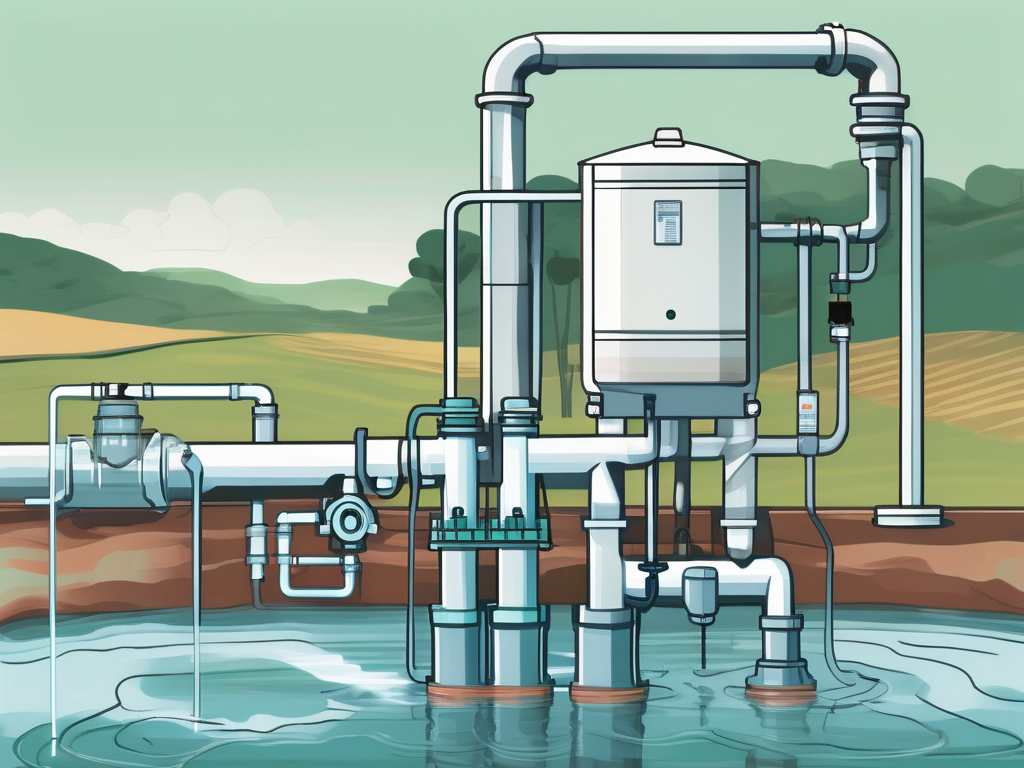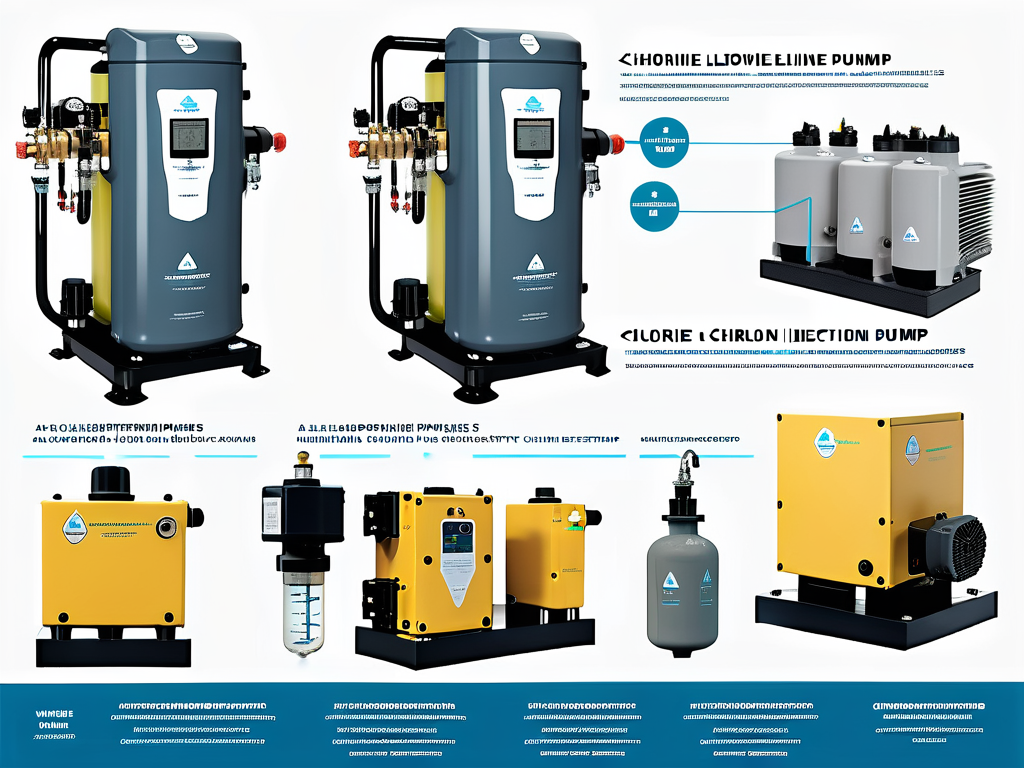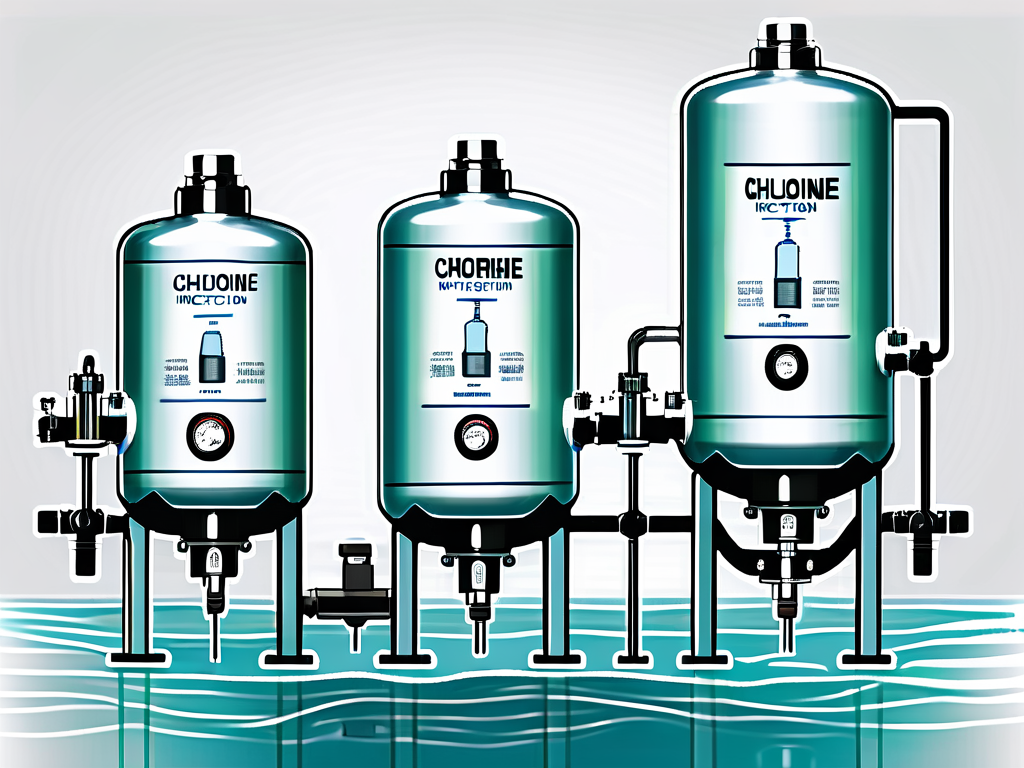
Choosing the Best Chlorine Injection Pump for Well Water Systems
Water is an essential resource, and ensuring its purity is critical, especially for those relying on well water systems. One effective method for achieving clean water is through the use of chlorine injection pumps. In this article, we will explore various aspects of chlorine injection pumps, helping you make an informed decision for your well water system.
Understanding the Role of Chlorine Injection Pumps in Well Water Systems
Chlorine injection pumps play a vital role in the disinfection of well water. They are designed to inject a precise amount of chlorine into the water system, ensuring the elimination of harmful bacteria, viruses, and other pathogens. This process is essential in maintaining a safe and healthy water supply, especially in areas where water quality can be compromised.
The injection of chlorine helps to not only disinfect the water but also to control odors and improve taste. By maintaining appropriate levels of chlorine, homeowners can guarantee their well water is safe for consumption and usage. This is particularly important in rural areas where well water is often the primary source of drinking water, and the risk of contamination from nearby agricultural activities or natural sources is heightened.
The Importance of Chlorine in Water Purification
Chlorine has been used for over a century as a powerful disinfectant in water treatment processes. Its importance cannot be overstated, as it effectively kills or inactivates a wide range of microorganisms. Moreover, chlorine provides a residual effect, meaning it continues to protect the water after initial treatment, making it a valuable component in public and private water systems alike. This residual effect is crucial because it acts as a safeguard against recontamination as water travels through pipes and storage tanks.
For well water users, the inclusion of chlorine ensures a proactive approach to water safety. It not only safeguards against potential contaminants but also helps to maintain the overall quality of water throughout its distribution system. In addition, regular monitoring and adjustment of chlorine levels can help identify changes in water quality, allowing for timely interventions if any issues arise. This vigilance is especially important for families with young children, elderly members, or individuals with compromised immune systems, who may be more susceptible to waterborne illnesses.
How Chlorine Injection Pumps Work
Chlorine injection pumps work by using a positive displacement mechanism that allows them to accurately control the amount of chlorine being added to the water. Typically, these pumps draw liquid chlorine from a storage tank and inject it into the flow of water at a designated point. The design of these pumps often includes features that enhance safety, such as leak detection systems and automatic shut-off valves, which prevent over-injection and potential hazards.
The effectiveness of these pumps lies in their ability to adjust the dosage of chlorine based on water flow rates and specific water quality needs. This precise control ensures optimal disinfection levels without excessive use of chlorine, which could lead to unwanted taste or odor issues. Furthermore, modern chlorine injection systems can be integrated with advanced monitoring technology, allowing homeowners to track chlorine levels and water quality in real time. This integration not only enhances the efficiency of the water treatment process but also provides peace of mind to users, knowing that their water is being continuously monitored for safety and quality.
Key Factors to Consider When Choosing a Chlorine Injection Pump
When selecting a chlorine injection pump for your well water system, there are several critical factors to consider. Understanding these components can help ensure you choose a pump that meets your specific needs and provides reliable performance over time.

Pump Capacity and Size
The pump’s capacity is paramount in determining how effective it will be for your water system. You need to assess the flow rate of your well water and the required chlorine dosage for adequate disinfection.
Choose a pump that can handle the maximum flow rate during peak usage while still delivering the required chlorine concentration. An undersized pump may lead to inadequate disinfection, while an oversized pump can waste resources and lead to high costs. It’s also important to consider the variability in water demand throughout the year; for instance, seasonal changes can affect flow rates, and your pump should be capable of adapting to these fluctuations without compromising water quality.
Material and Build Quality
The construction materials of a chlorine injection pump are crucial due to the corrosive nature of chlorine. Look for pumps made from durable materials such as PVC, polypropylene, or other corrosion-resistant substances that can withstand the chemical properties of chlorine.
The overall build quality also impacts the longevity and reliability of the pump. A well-constructed pump will require less maintenance and have a longer lifespan, making it a more cost-effective option in the long run. Furthermore, consider the pump's design features, such as seals and gaskets, which should also be resistant to chlorine degradation. This attention to detail can prevent leaks and ensure that the system operates efficiently for years to come.
Ease of Installation and Maintenance
When choosing a chlorine injection pump, consider how user-friendly it is in terms of installation and maintenance. Some models are designed with straightforward installation processes, while others may require professional assistance.
Additionally, regular maintenance is key to ensuring optimal performance. Pumps that facilitate easy access to parts for cleaning and servicing will save you time and resources over the years. Look for features such as clear indicators for maintenance schedules, and consider pumps that come with comprehensive manuals or online support. Moreover, some advanced models offer self-diagnostic capabilities that can alert you to potential issues before they become serious problems, further enhancing the reliability of your water treatment system.
Different Types of Chlorine Injection Pumps
There are various types of chlorine injection pumps available, each with its distinct advantages and applications. Understanding these types can help in identifying which pump aligns best with your specific situation.

Peristaltic Pumps
Peristaltic pumps are often favored for their simplicity and reliability. They work by compressing a flexible tube to move chlorine through the system. This design minimizes the risk of leaks and backflow, making it a safe option for injecting chlorine into well water.
Another significant advantage of peristaltic pumps is their capability to handle viscous liquids. They are also easy to maintain, as hose replacement is typically straightforward. Moreover, these pumps can be adjusted to deliver precise doses of chlorine, which is crucial for maintaining optimal water quality. This precision is especially important in applications where the chlorine concentration must be closely monitored, such as in swimming pools or aquaculture systems. The ability to easily calibrate the pump settings allows operators to respond quickly to changes in water chemistry, ensuring that the water remains safe and clean for use.
Diaphragm Pumps
Diaphragm pumps are another popular choice for chlorine injection. They operate using a diaphragm that moves up and down to create a vacuum, drawing in chlorine and then forcing it out into the water system.
These pumps are known for their accuracy and ability to handle varying flow rates, making them an excellent choice for systems with fluctuating water demands. Additionally, diaphragm pumps typically offer robust construction for enhanced durability. Their design allows for the handling of corrosive chemicals, which is essential when dealing with chlorine, a substance that can be harsh on equipment over time. Furthermore, diaphragm pumps often include features like pressure relief valves and automatic shut-off mechanisms, adding an extra layer of safety and reliability. This makes them particularly suitable for industrial applications where consistent performance is critical, such as in municipal water treatment facilities or large-scale agricultural operations.
Safety Measures for Using Chlorine Injection Pumps
While chlorine injection pumps are essential for water purification, safety precautions must be taken to ensure safe operation and handling of chlorine.
Handling and Storing Chlorine Safely
Chlorine is a hazardous chemical, and proper handling is crucial. Always store chlorine in a cool, dry place away from direct sunlight and incompatible materials. Use appropriate personal protective equipment when handling chlorine containers, such as gloves and goggles.
Ensure that all storage areas are well-ventilated, and keep chlorine away from children and pets. Regular training for all users on safe practices is recommended to minimize potential risks. Additionally, it is important to have an emergency response plan in place, including spill containment procedures and access to safety data sheets (SDS) for chlorine. Familiarizing all personnel with these protocols can significantly reduce the risk of accidents and ensure a swift response in case of an emergency.
Regular Maintenance and Inspection
Consistent upkeep of your chlorine injection pump is essential for both operational efficiency and safety. Regularly inspect hoses, connections, and storage containers for any signs of wear or leaks. It’s also vital to check the calibration of the pump to ensure accurate dosing of chlorine.
Developing a maintenance schedule that includes routine checks and servicing will prolong the life of your pump and enhance the safety of your water purification process. Moreover, documenting all maintenance activities can provide valuable insights into the pump's performance over time and help identify any recurring issues that may need addressing. It is also advisable to keep spare parts on hand, such as O-rings and seals, to facilitate quick repairs and minimize downtime, ensuring that your water treatment system operates smoothly and safely.
Cost Considerations for Chlorine Injection Pumps
The cost of a chlorine injection pump can vary significantly based on its type, features, and quality. Understanding the associated costs can help you make a more informed decision.
Initial Purchase Price
When budgeting for a chlorine injection pump, consider the initial purchase price as the first significant cost. While getting a budget-friendly option may be tempting, it's essential to weigh this against the features and long-term reliability the pump offers.
Investing in a high-quality pump can save you money over time by minimizing repair and replacement needs, as well as enhancing the overall water quality. It's wise to consider the warranty and customer support options provided by the manufacturer as part of your evaluation.
Additionally, the type of pump you choose—whether it's a diaphragm, peristaltic, or other types—can also influence the price. Diaphragm pumps, for instance, are known for their durability and precision, often justifying a higher upfront cost due to their ability to handle varying flow rates and pressures. On the other hand, peristaltic pumps may offer a more economical choice for smaller applications but could require more frequent maintenance, which can add to long-term expenses.
Operational and Maintenance Costs
Beyond the initial purchase price, you must account for ongoing operational and maintenance costs. This includes the cost of chlorine, energy consumption, and routine maintenance activities.
Regularly evaluating these costs will help you gauge the overall affordability of running a chlorine injection system. Some pumps may have lower initial prices but could incur higher maintenance costs over time.
Moreover, the efficiency of the pump can significantly impact operational costs. High-efficiency pumps can reduce energy consumption, which is particularly important for large-scale operations where energy costs can add up quickly. It's also worth considering the availability and pricing of replacement parts, as some manufacturers may have a more robust supply chain than others, making repairs easier and less costly. Additionally, implementing a proactive maintenance schedule can further mitigate unexpected expenses, ensuring that the pump operates at peak efficiency and prolonging its lifespan.
Making the Final Decision: Choosing the Best Pump for Your Needs
Now that you've explored the various factors and types of chlorine injection pumps, it’s time to make a well-informed decision based on your unique water system requirements.
Assessing Your Specific Water System Needs
Each well water system has distinct characteristics that influence the type of chlorine injection pump you should select. Conduct thorough testing of your water to understand its quality and specific needs. This assessment will pinpoint the necessary chlorine dosage and the best pump type to handle your system's flow rate securely.
By aligning your pump choice with your water characteristics, you ensure optimal disinfection and efficient operation. Additionally, consider the environmental factors surrounding your water system, such as temperature fluctuations and potential contaminants. These elements can affect the performance of different pump types, making it crucial to choose one that can withstand your specific conditions. For instance, if your water source has high sediment levels, a pump with robust filtration capabilities may be necessary to prevent clogging and ensure longevity.
Weighing Pros and Cons of Different Pumps
Finally, consider the pros and cons of the various pumps you are evaluating. Make a comparison chart that includes factors such as cost, maintenance requirements, reliability, and performance under varying conditions.
Engage with other users, read reviews, and consult with professionals to gather insights and recommendations tailored to your specific situation. This comprehensive approach will equip you with the knowledge you need to choose the best chlorine injection pump for your well water system. Furthermore, think about the long-term implications of your choice. Some pumps may have a lower initial cost but could incur higher maintenance expenses over time. Conversely, investing in a higher-quality pump might yield better efficiency and lower operational costs in the long run. Taking the time to evaluate these aspects will help you make a decision that not only meets your immediate needs but also supports the sustainability of your water system for years to come.
